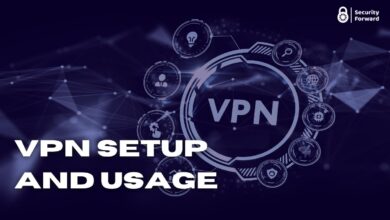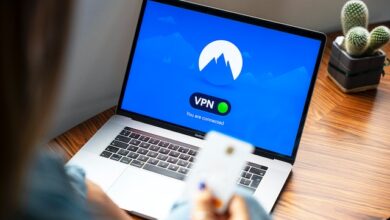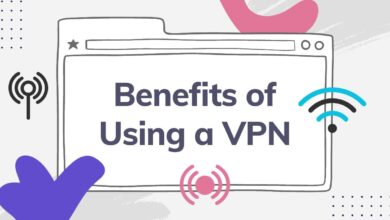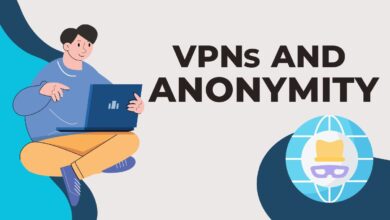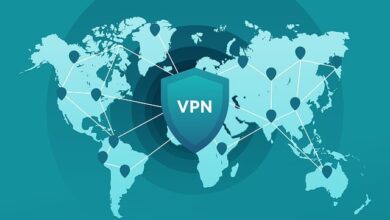Technical Considerations For VPN (Performance And Connectivity)
KEY TAKEAWAYS
50% of respondents use a VPN on public Wi-Fi, with 80% using it for increased security and 33% to mask their internet activity.[1]
The global VPN market is projected to reach 75.59 billion U.S. dollars by 2027.[2]
Reflecting their growing importance, the global VPN market is projected to reach 75.59 billion U.S. dollars by 2027, underscoring the expanding role of VPNs in our digital lives.[3]
In today’s interconnected world, Virtual Private Networks (VPNs) are more than just a tool for privacy enthusiasts; they are a critical component of online security and connectivity for individuals and businesses alike. Reflecting their growing importance, the global VPN market is projected to reach 75.59 billion U.S. dollars by 2027, underscoring the expanding role of VPNs in our digital lives.[3]
However, it’s important to remember that the effectiveness of a private network is heavily dependent on various technical considerations for VPNs, especially in terms of performance and connectivity. This guide aims to provide a detailed overview of these aspects, ensuring informed decisions when implementing or using a VPN.
Fast Facts
One of the foremost considerations for VPNs is their compatibility with different operating systems.
Device Compatibility
Device compatibility is crucial in VPN implementation. Ensuring seamless integration across various devices and operating systems is key for optimal functionality and security.
This is underscored by user behavior, as 50% of respondents use a VPN on public Wi-Fi, primarily for enhanced security (80%) and to mask their internet activity (33%).[1] Such statistics highlight the importance of VPNs across different platforms, particularly in scenarios where security is paramount.
VPN Clients for Different Operating Systems
One of the foremost considerations for VPNs is their compatibility with different operating systems. Whether you’re operating on Windows, macOS, Linux, or any other platform, selecting a VPN client that is specifically designed for your system is crucial.
This compatibility ensures a smoother installation process, optimal performance, and robust security. Each operating system has its unique network configurations and security protocols. A VPN client tailored for these specifics will integrate seamlessly, providing a stable and secure connection.
Fast Facts
The global VPN market is projected to reach 75.59 billion U.S. dollars by 2027.[2]
VPNs for Mobile Devices
The surge in mobile device usage for both personal and professional tasks has made mobile VPN compatibility essential. iOS and Android devices have distinct requirements and capabilities concerning VPNs. An effective mobile VPN should strike a balance between robust security and battery efficiency. It should also be user-friendly, allowing easy configuration and operation on smaller screens and mobile interfaces.
Network Configuration
Proper Network Configuration is essential for VPN efficiency. It involves setting up routers and understanding firewalls to ensure secure, uninterrupted VPN connectivity and performance.
Setting Up VPN on a Router
For those aiming to secure multiple devices or an entire network, configuring a VPN on a router is an efficient solution. This method encrypts all traffic passing through the router, providing comprehensive coverage.
However, it’s crucial to ensure that your router is VPN-compatible and that you possess the technical expertise for accurate configuration. Incorrect setup can lead to network vulnerabilities or performance degradation.
VPN Passthrough and NAT Firewall
A clear understanding of VPN passthrough and Network Address Translation (NAT) firewalls is vital for a seamless VPN experience. VPN passthrough enables VPN traffic to pass through your router and firewall without any blockages. Conversely, a NAT firewall adds an extra security layer by concealing your devices’ IP addresses. Striking the right balance between these features is key to maintaining both security and connectivity.
Fast Facts
iOS and Android devices have distinct requirements and capabilities concerning VPNs.
Troubleshooting Common VPN Issues
Troubleshooting common VPN issues is vital for maintaining reliable service. Addressing connectivity and performance problems promptly ensures a smooth and secure VPN experience.
Connectivity Problems
Connectivity issues are a common challenge with VPNs and can arise from various sources, such as network configuration errors, server problems, or ISP restrictions. To troubleshoot, begin by checking your internet connection without the VPN. If that functions correctly, the issue might lie with the VPN server or your VPN configuration settings.
Resolving Speed and Performance Issues
VPNs can sometimes reduce your internet speed due to the encryption process or the physical distance to the server. To address this, try connecting to a server that is geographically closer to you, or switch to a different protocol that might offer better speed without compromising security. Additionally, ensure that both your device and VPN software are up-to-date to prevent performance issues related to outdated technology.
FAQs
1. Can I use a free VPN for my business?
While free VPNs might seem appealing, they often lack the necessary security features and reliability for business use. It is recommended to invest in a paid, reputable VPN service for enhanced security and support.
2. How do I know if my VPN is working correctly?
You can verify your VPN’s functionality by checking your IP address before and after connecting to the VPN. If the VPN is active, your IP address should reflect the server’s location.
3. Can a VPN impact my internet speed?
Yes, VPNs can sometimes slow down your internet due to the encryption process. However, the impact is usually minimal with quality VPN services.
Conclusion
The effectiveness of VPNs for secure, private internet access hinges on technical considerations like device compatibility, network configuration, and troubleshooting. A thorough understanding of these factors is crucial. By focusing on these details and selecting the right service tailored to your needs, you can enhance your VPN’s performance and connectivity, ensuring a secure and efficient online experience.
To learn more about VPNs for smartphone users, explore your options from our blogs at Security Forward.
- “70+ VPN Statistics and Trends 2023 – Usage Rates, Demographics, and Issues.” Techopedia, 28 Nov. 2023. https://www.techopedia.com/vpn-statistics#:~:text=The%20most%20likely%20age%20group,%25
- “Dartmouth College Library.” How to Cite Sources: Geography, Dartmouth College, https://researchguides.dartmouth.edu/geography/cite.
- “Virtual Private Network (VPN) Market Expected to Reach $75.59 Billion by 2027 Driven by Rising Cybersecurity Concerns.” EIN Presswire, https://www.einpresswire.com/article/672703972/virtual-private-network-vpn-market-expected-to-reach-75-59-billion-by-2027-driven-by-rising-cybersecurity-concerns.
